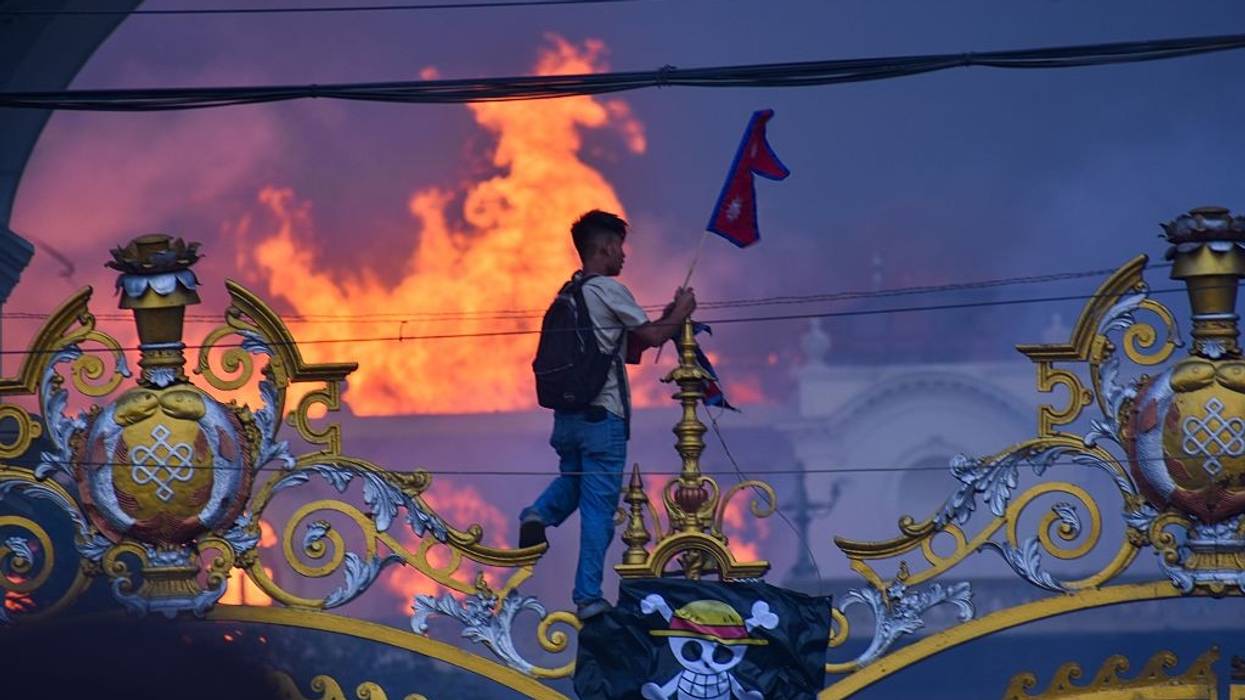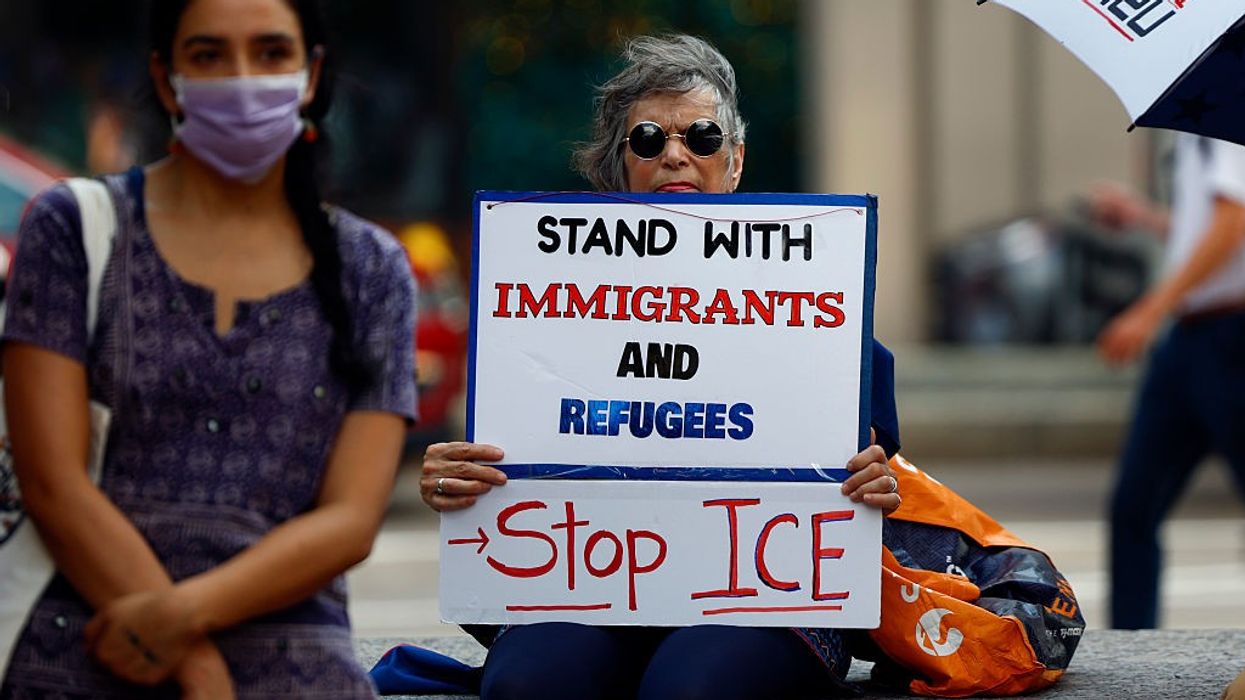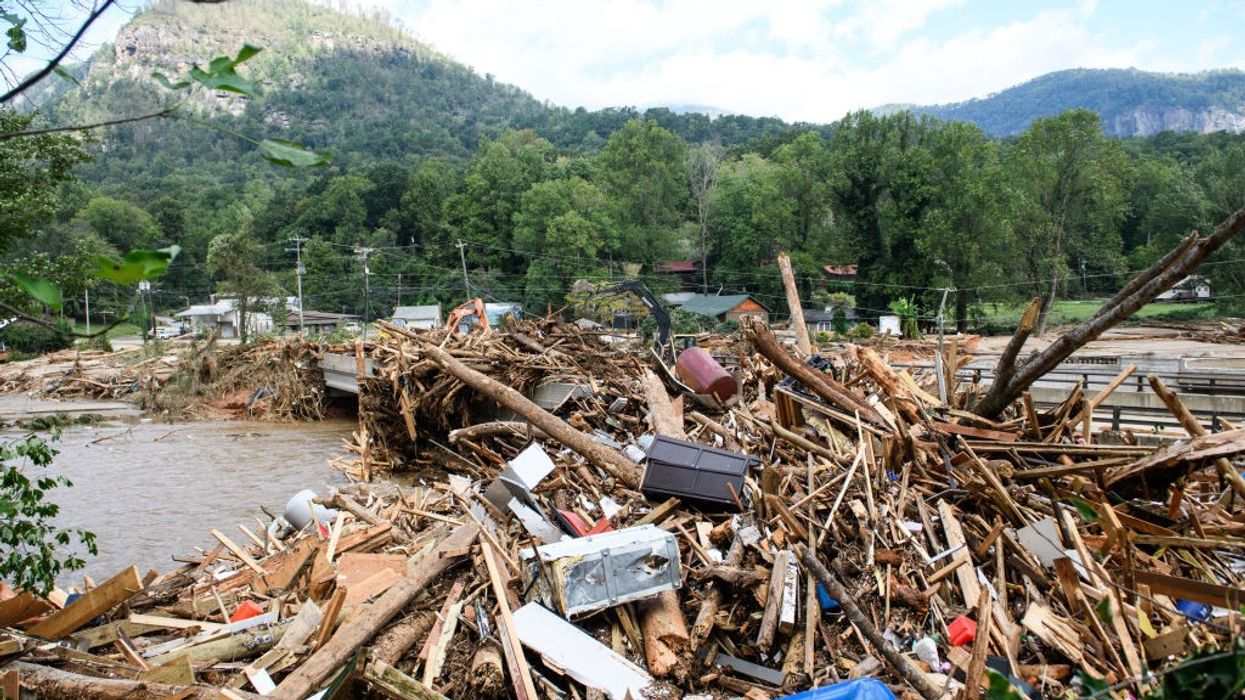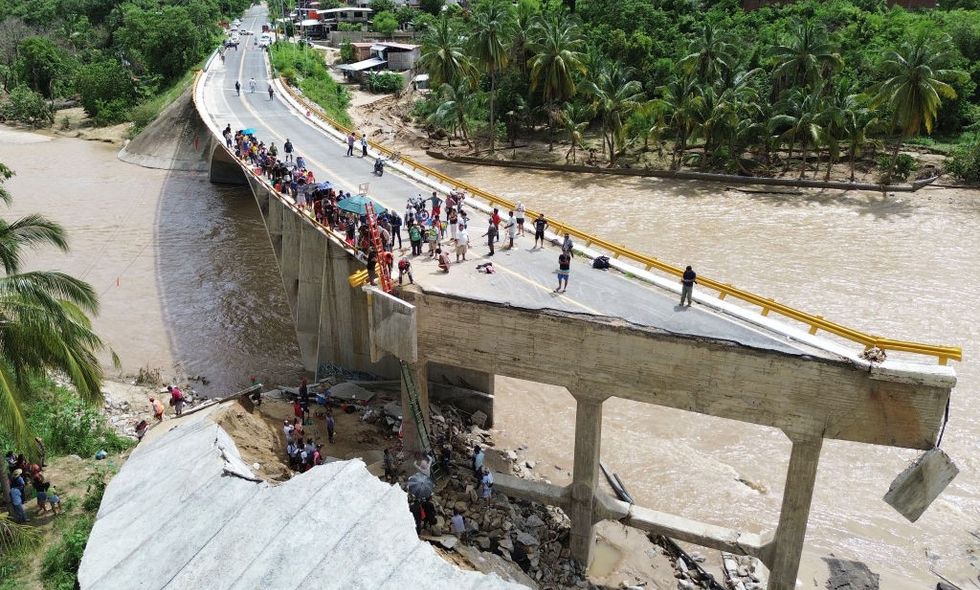Nepal PM Resigns as Anti-Corruption Protesters Torch Parliament
"In every sector... corruption is increasing," said one protester. "Students are being killed by police... We would like to request that the government of Nepal stand down."
Nepalese Prime Minister KP Sharma Oli resigned Tuesday as youth-led anti-corruption protesters set fire to government buildings and assaulted officials as they fled for their lives as the number of demonstrators killed by state forces rose to at least 22.
On Monday, state security forces attacked protesters with weapons including water cannons, tear gas, batons, steel-coated rubber bullets, and live ammunition, killing at least 19 people and wounding upward of 350 others in the capital Kathmandu and other cities. Medical responders said that many of the protesters had been shot in the chest or head.
The BBC reported three more people were killed on Tuesday, bringing the death toll to at least 22. Protesters in Kathmandu stormed and set fire to the Singha Durbar—which houses the Nepalese Parliament and several government ministries—as well as the home of Oli, who was serving his third nonconsecutive term and said he resigned "in order to take further steps towards a political solution."
Video recordings posted on social media show protesters chasing and assaulting Finance Minister Bishnu Paudel, who is seen stripped to his underwear and dragged through a street. Another video shows bank notes raining from the sky as demonstrators set Energy Minister Deepak Khadka's home on fire.
Yet another video posted on social media shows Foreign Minister Arju Rana Deuba and her husband, former Prime Minister and Nepali Congress President Sher Bahadur Deuba, bloodied after their home was attacked and burned. The home of Jhala Nath Khanal, another former prime minister, was also torched. Khanal's wife, Ravi Laxmi Chitrakar, was inside the house at the time and was severely burned, according to The New York Times.
The Condition of four time PM of Nepal @SherBDeuba and his wife curent foreign minister Arju Deuba Rana pic.twitter.com/BxrQUm9QBs
— IN- Depth Story (@in_depthstory) September 9, 2025
The demonstrations, now in their second day, were sparked by growing outrage over government corruption and impunity, pervasive nepotism personified by the "nepo-kid" children of powerful officials, and the September 4 nationwide ban on 26 social media platforms including Facebook, Instagram, LinkedIn, Reddit, WhatsApp, X, and YouTube.
The ban came after the companies missed a government-imposed registration deadline. Some social media platforms, such as Nimbuzz, TikTok, Viber, and WeTalk registered in time and were allowed to remain in operation.
Critics, who include Kathmandu Mayor Balen Shah—a 35-year-old rapper-turned-politician who many believe could be a future prime minister—called the ban an attack on free expression and businesses that depend on social media for sales and marketing.
Although the government subsequently lifted the ban amid the nascent protests, the move came too late—and, critically, the social media proscription was only part of the problem.
"It's shameful to see international media framing Nepal's Gen-Z protest as merely against the social media ban. That's not what it is about," Nepalese physicist Sunny Labh wrote Monday on social media. "The protest was—and still is—against a corrupt system, unchecked government privileges, and years of exploitation. Reducing it to just the ban is dishonest and insulting to the movement."
One student protester in Kathmandu told The New Indian Express: "We are not fighting Oli, we are fighting Oli-ism—the system that rewards loyalty over competence, wealth over work, and silence over truth."
Satish Mandal, a 26-year-old protester in the capital, told the BBC that "Nepal is being corrupted day by day."
"In every sector, especially in heath and education, corruption is increasing," he added. "Students are being killed by police... We would like to request that the government of Nepal stand down."
It is unclear who will be Nepal's next prime minister. On Tuesday, the army issued a statement saying it would secure law and order, starting at 10:00 pm local time.
International human rights defenders condemned the deadly crackdown.
"We call on the authorities to respect and ensure the rights of peaceful assembly and freedom of expression," United Nations Human Rights Office spokesperson Ravina Shamdasani said in a statement Monday. "All security forces must comply with the basic principles on the use of force and firearms by law enforcement officials."
"Nepal enjoys a lively democracy and active civic space, and dialogue is the best means to address young people's concerns," Shamdasani added. "We urge reconsideration of measures to regulate social media to ensure they comply with Nepal's human rights obligations."
Amnesty International Nepal director Nirajan Thapaliya said Monday that "the protestors have a right to peacefully protest and express their frustration and outrage against corruption and the government's restriction on the right to freedom of expression including the social media ban in Nepal."
"It is the obligation of Nepali authorities to respect this right in line with its commitments under international law as well as its own constitution and protect all protesters from further harm," Thapaliya added. "The government must genuinely listen to the legitimate demands of the youth to end corruption, deliver accountability, and ensure civil liberties instead of meting out such reckless violence against them."



 Residents look at a broken bridge following Hurricane John near Acapulco, Mexico, on September 29, 2024. (Photo: Francisco Robles/AFP via Getty Images)
Residents look at a broken bridge following Hurricane John near Acapulco, Mexico, on September 29, 2024. (Photo: Francisco Robles/AFP via Getty Images)